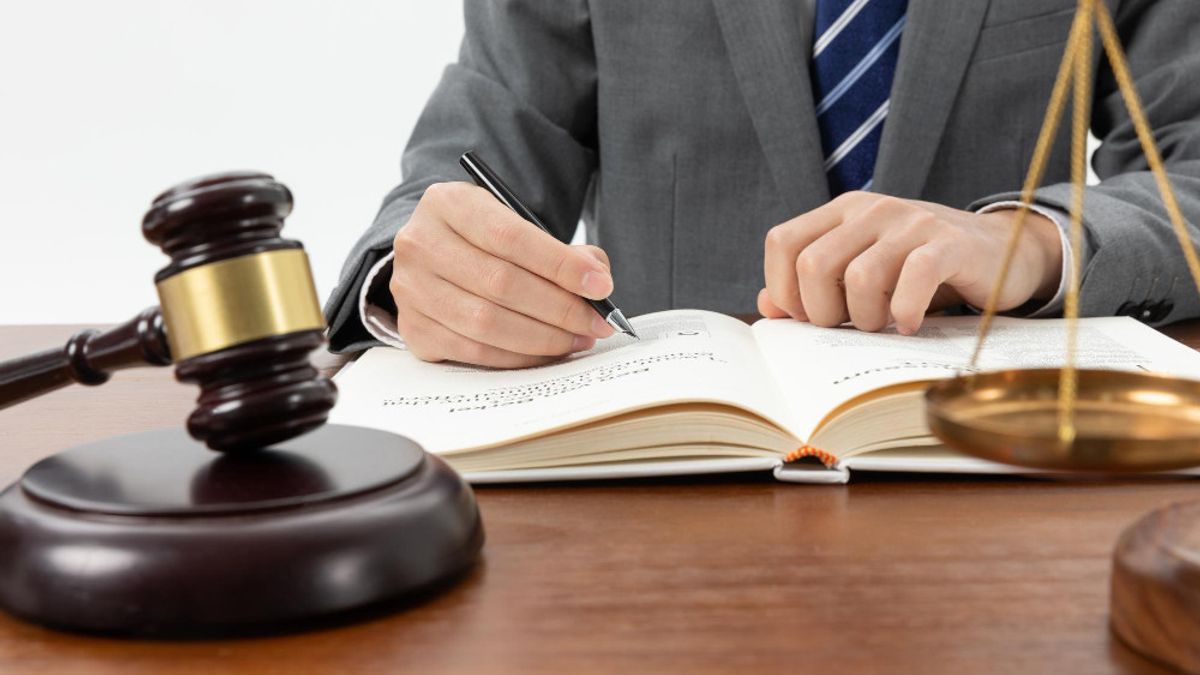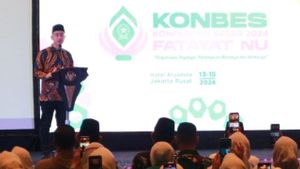The flow of lawsuits from the 2024 Pilkada at the Constitutional Court (MK) is of primary concern at this time. The Constitutional Court continues to accept the submission of disputes over the results of the Pilkada, although until now no lawsuit has been filed regarding the results of the election for the governor. This process has clear stages to ensure that every dispute can be handled according to applicable law.
The chairman of the Constitutional Court, Suhartoyo, stated that the dispute application application submission service will be open until December 18, 2024. The lawsuit submission began after the regional General Elections Commission (KPU) announced the results of the vote. According to the rules, the party objected to having three working days after the announcement to file a lawsuit to the Constitutional Court.
"The time for filing the lawsuit varies depending on each province. After the results are determined, the parties who object must immediately submit an application within three working days," Suhartoyo said, Monday (9/12/2024).
So, what exactly is the flow of the lawsuit on the results of the 2024 Pilkada in the Constitutional Court? Here are the full stages.
1. Initial Application
Applicants can apply through an electronic system (e-AP3) within three working days after the regional KPU announces the results of the Pilkada.
2. Document Repair and Completeness
After the initial application was submitted, the applicant was given a maximum of three working days to complete or repair the application document in accordance with the specified conditions.
3. Application Recording
If the application is declared complete, the Constitutional Court will record it in the Constitutional Case Registration Book (BRPK) using the e-BRPK system. The applicant will then receive the Constitutional Case Registration Deed (ARPK) as a sign that the application has been officially registered.
4. Determination of the trial
After the application is registered, the Constitutional Court judge will hold a meeting to determine the trial schedule.
Examination And Decision Session
The preliminary examination hearing will be scheduled for early January 2025. The trial process will take place similar to the 2024 Legislative Election dispute trial, where the panel of judges consists of three constitutional judges.
However, the main difference lies in the deadline for completion. The Constitutional Court is required to resolve disputes over the results of the Pilkada within 45 working days from the time the application is recorded in the e-BRPK. This time limit aims to ensure that the process runs quickly and efficiently without sacrificing the principle of justice.
Transparent And Efficient Processes
The Chief Justice of the Constitutional Court, Suhartoyo, emphasized the importance of transparency in each stage of this process. With the implementation of the electronic system, it is hoped that all processes, from submissions to decisions, can be more efficient and monitored openly by the public. This also helps applicants take advantage of the maximum available time and system.
Tips For Plaintiffs
For applicants who wish to file a lawsuit on the results of the 2024 Pilkada, it is important to:
So, the flow of the lawsuit on the results of the 2024 Pilkada in the Constitutional Court is designed to ensure justice and transparency. With structured stages ranging from submissions to decisions, this process provides opportunities for parties who feel disadvantaged to submit their objections.
BACA JUGA:
The electronic system implemented also helps facilitate monitoring and efficiency of the process. For applicants, understanding and complying with applicable procedures is very important so that the lawsuit can be handled in accordance with applicable law.
And the surprising fact that you need to know is that there have been 200 Pilkada 2024 Lawsuits that have been submitted to the Constitutional Court
So after knowing the Flow of the 2024 Pilkada Result Lawsuit at the Constitutional Court, look at other interesting news on VOI.ID, it's time to revolutionize news!
The English, Chinese, Japanese, Arabic, and French versions are automatically generated by the AI. So there may still be inaccuracies in translating, please always see Indonesian as our main language. (system supported by DigitalSiber.id)















